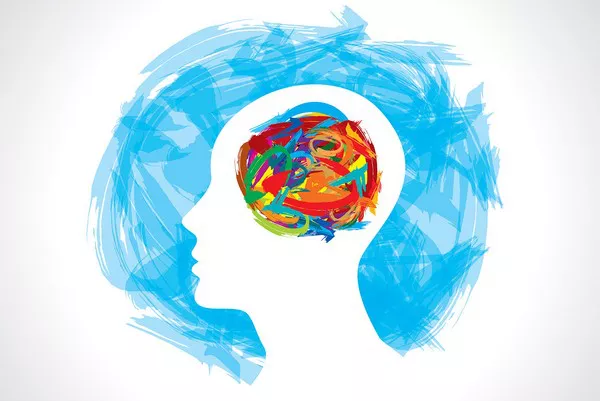Mental health is an integral component of overall well-being, encompassing emotional, psychological, and social aspects of an individual’s life. Recognizing signs of mental health concerns is crucial for early intervention and support. This professional article aims to provide a comprehensive exploration of five key indicators of mental health, shedding light on the nuanced and varied ways in which mental health can manifest. By understanding these signs, individuals, caregivers, and healthcare professionals can contribute to the promotion of mental health and the prevention of mental health challenges.
The Importance of Mental Health Awareness:
In a world where discussions around mental health are gaining momentum, it is essential to understand that mental health is a spectrum. Just as physical health varies from person to person, mental health exists on a continuum, and individuals may experience fluctuations in their mental well-being throughout their lives. Awareness of mental health signs enables individuals to better navigate their emotions and seek support when needed.
1. Changes in Mood and Emotions:
Normal Variations: Everyone experiences changes in mood and emotions from time to time. Feeling joy, sadness, excitement, or stress are natural responses to life’s circumstances.
Potential Signs of Concern:
Persistent Sadness or Hopelessness: Prolonged periods of intense sadness, a feeling of emptiness, or a sense of hopelessness may indicate depression.
Irritability or Anger: Unexplained irritability, frequent mood swings, or a heightened sense of anger can be indicators of underlying mental health challenges.
Excessive Worry or Anxiety: Persistent and overwhelming worry or anxiety that interferes with daily life may suggest an anxiety disorder.
Observations and Support:
Pay attention to noticeable changes in mood or emotions.
Encourage open communication to understand what the individual may be experiencing.
Seek professional guidance if emotional changes significantly impact daily functioning.
2. Changes in Behavior and Social Interactions:
Normal Variations: Behavioral patterns can shift based on life circumstances, stressors, or personal growth. Changes in routine or social engagement may be temporary adjustments.
Potential Signs of Concern:
Social Withdrawal: Avoiding social interactions, isolating oneself, or withdrawing from previously enjoyed activities may indicate underlying mental health challenges.
Significant Changes in Sleep or Eating Habits: Disruptions in sleep patterns, such as insomnia or excessive sleeping, as well as noticeable changes in appetite and eating habits, could be red flags.
Observations and Support:
Be attentive to significant shifts in behavior or social engagement.
Approach conversations with empathy and non-judgmental support.
Encourage professional evaluation if behavioral changes persist.
3. Cognitive Changes and Difficulty Concentrating:
Normal Variations: Occasional lapses in concentration or forgetfulness can be normal, especially during periods of stress or fatigue.
Potential Signs of Concern:
Impaired Concentration or Decision-Making: Persistent difficulty focusing, making decisions, or completing tasks may signal mental health challenges.
Memory Issues: Noticeable memory lapses or forgetfulness that interferes with daily functioning may be a cause for concern.
Observations and Support:
Monitor cognitive changes and their impact on daily life.
Encourage individuals to seek professional evaluation if cognitive difficulties persist.
Provide a supportive environment for effective coping strategies.
4. Physical Symptoms and Changes:
Normal Variations: Physical symptoms can often be linked to stress or other non-psychiatric factors. However, persistent physical symptoms without an apparent cause may warrant further investigation.
Potential Signs of Concern:
Unexplained Aches and Pains: Chronic or recurring physical complaints, such as headaches, stomachaches, or muscle tension, may be associated with mental health challenges.
Changes in Sleep Patterns: Insomnia, hypersomnia (excessive sleeping), or disturbances in sleep quality can be indicators of underlying mental health issues.
Changes in Weight: Significant weight loss or gain not attributable to changes in diet or exercise may be linked to mental health concerns.
Observations and Support:
Recognize the connection between mental and physical well-being.
Encourage seeking medical and mental health evaluations for unexplained physical symptoms.
Promote a holistic approach to well-being, addressing both physical and mental health.
5. Thoughts of Self-Harm or Suicidal Ideation:
Normal Variations: It is essential to emphasize that thoughts of self-harm or suicide are not considered normal variations. However, individuals experiencing such thoughts may be hesitant to communicate their struggles.
Potential Signs of Concern:
Expressing Hopelessness: Verbalizing feelings of hopelessness or a belief that life is not worth living may be a significant concern.
Engaging in Self-Harming Behaviors: Evidence of self-harm, such as cutting or burning, requires immediate attention and intervention.
Talking About Suicide: Expressing thoughts of suicide or having a specific plan to harm oneself is a critical emergency situation.
Observations and Support:
Take any mention of self-harm or suicidal thoughts seriously.
Encourage open dialogue and express concern without judgment.
Seek immediate professional help, involving mental health professionals or emergency services if necessary.
Conclusion:
Promoting mental health awareness involves recognizing the diverse ways in which mental health can manifest. The five indicators discussed – changes in mood and emotions, alterations in behavior and social interactions, cognitive changes and difficulty concentrating, physical symptoms and changes, and thoughts of self-harm or suicide – offer a comprehensive framework for understanding mental health signs.
It is crucial to approach mental health with empathy, destigmatize seeking support, and foster open conversations. Individuals experiencing mental health challenges should feel empowered to reach out to healthcare professionals, counselors, or support networks. By collectively embracing a holistic perspective on well-being, we can contribute to creating a society that prioritizes mental health, supports early intervention, and strives for comprehensive well-being for all.


